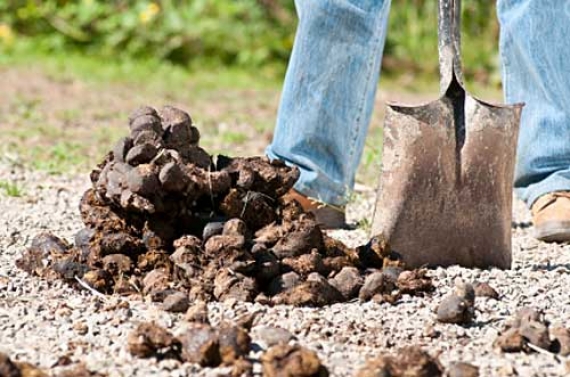Equine Deworming
Equine Recommended Deworming Schedule
Adult Horse Schedule
- Low Shedders (<200 EPG – eggs per gram of manure)
- Fecal Egg Count performed prior to deworming in spring (ideally spring and fall)
- Spring (March) – ivermectin (Equell®, Zimectrin®, Rotectin®, IverCare®), moxidectin (Quest®)
- Fall (October) – ivermectin w/praziquantel (Equimax®, Zimectrin Gold®) or moxidectin with praziquantel (Quest Plus®)
- Moderate Shedders (200 – 500 EPG)
- Fecal Egg Count performed prior to deworming in spring (ideally spring and fall)
- Spring (March) – Ivermectin (Equell®, Zimectrin®, Rotectin®, IverCare, etc), moxidectin (Quest®) or double-dose fenbendazole for 5 days (Panacur® PowerPak)
- Late Summer (July) – pyrantel pamoate (Strongid paste®, TapeCare Plus®, etc), fenbendazole (Panacur®, Safe-Guard®)
- Early Winter (November) – ivermectin w/ praziquantel (Equimax®, Zimectrin Gold®) or moxidectin with praziquantel (Quest Plus®)
- High Shedders (>500 EPG)
- Fecal Egg Count performed prior to deworming in spring and fall to monitor for signs of resistance
- Spring (March) – ivermectin (Equell®, Zimectrin®, Rotectin®, IverCare®), moxidectin (Quest®) or double-dose of fenbendazole for 5 days (Panacur® PowerPak)
- Summer (June) – pyrantel pamoate (Strongid paste®, TapeCare Plus®), fenbendazole (Panacur, SafeGuard®) or Oxibendazole (Anthelcide®)
- Fall (September) – ivermectin w/ praziquantel (Equimax®, Zimectrin Gold®) or moxidectin with praziquantel (Quest Plus®)
- Winter (December) – pyrantel pamoate (Strongid paste®, TapeCare Plus®), fenbendazole (Panacur®, SafeGuard®) or Oxibendazole (Anthelcide®)
Pregnant Mares
- Deworm as usual, but when you administer vaccinations 4-6 prior to foaling, deworm with ivermectin w/praziquantel (Equimax®,Zimectrin Gold®) or moxidectin with praziquantel (Quest Plus®)
Foal Schedule
- 2 months of age – ivermectin (Equell®, Zimectrin®, Rotectin®, IverCare®)
- 4 months – oxibendazole (Anthelcide EQ®)
- Optimally treat with pyrantel pamoate (Strongid®) at 5 months
- 6 months – moxidectin with praziquantel (Quest Plus®)
- 8 months – pyrantel pamoate (Strongid®)
- Optimally treat with fenbendazole (Panacur®, SafeGuard®) at 9 months
- 10 months – ivermectin (Equell®, Zimectrin®, Rotectin®, IverCare®)
- 12 months – fenbendazole (Panacur®, SafeGuard®)
Daily Deworming
- This involves the daily administration of pyrantel pamoate (Strongid C2x®), as well as ivermectin (Equell®) in the spring and Ivermectin with praziquantel (Quest Plus® ) administered in the fall. Daily deworming is ideal for weanlings and yearlingsfor ascarid prevention and treatment. Horses, particularly foals do not need to be separated and be creep feed as normal. Fecal egg counts should still be performed every 6 months to 1 year. Foals can be started after on this program once they reach 2 – 3 months of age.
Deworming Protocol Guidelines
Some of the important points and recommendations are:
1. Non-chemical parasite management:
- Rotate pastures
- Cross graze pastures with ruminants if possible
- Remove manure frequently
- Harrow/drag pastures in hot/dry weather and keep horses out for 2 months
- Avoid overstocking pastures
2. Deworming schedules (in general):
- Deworm foals every two months, starting at 2 months of age, for the first year of their life or use protocol for daily deworming described above.
- Individual horses will often require different deworming programs, even if living in the same or similar environments.
3. Measure the success of parasite control by doing fecal analysis at least once a year.
- Fecal floatation—an estimate of the parasite eggs in the horse
- Talk to your veterinarian before doing a fecal analysis to be sure enough time has passed since your horse’s last deworming for eggs to have reappeared in the feces. This Egg Reappearance Period differs depending on the dewormer used.
- Fecal egg count reduction test—worm egg count should decrease 90% when measured 14 days after deworming, depending on the product used.
4. Eliminate tapeworms from horses once a year with use of a dewormer containing praziquantel (Zimectrin Gold® or Quest Plus®).
5. Small strongyles (encysted stronglyes) in their larval stage are resistant to many dewormers. In their encysted form, they are resistant to all but moxidectin (Quest®) or a double dose of fenbendazole for 5 consecutive days (Panacur® PowerPak). Treat for the encysted form in winter or early spring and keep yearlings separated; they tend to shed the most small strongyles.
6. Don’t use the same pasture or paddocks year after year for mares and foals. This allows build-up of a high level of ascarid eggs, which are hardy and can live for years in the environment (even stalls).
Note: The two parastites of most concern are the small strongyles (encysted strongyles, cyanthostomes) and tapeworms. In young horses the parasite of biggest concern is the ascarid. The best way to determine the deworming schedule for your horse is to involve your veterinarian and to perform fecal egg counts (FEC) to determine the propensity of individual horses to carry high, medium or low worm burdens. An individualized deworming program can save money and allow the use of less dewormer.




